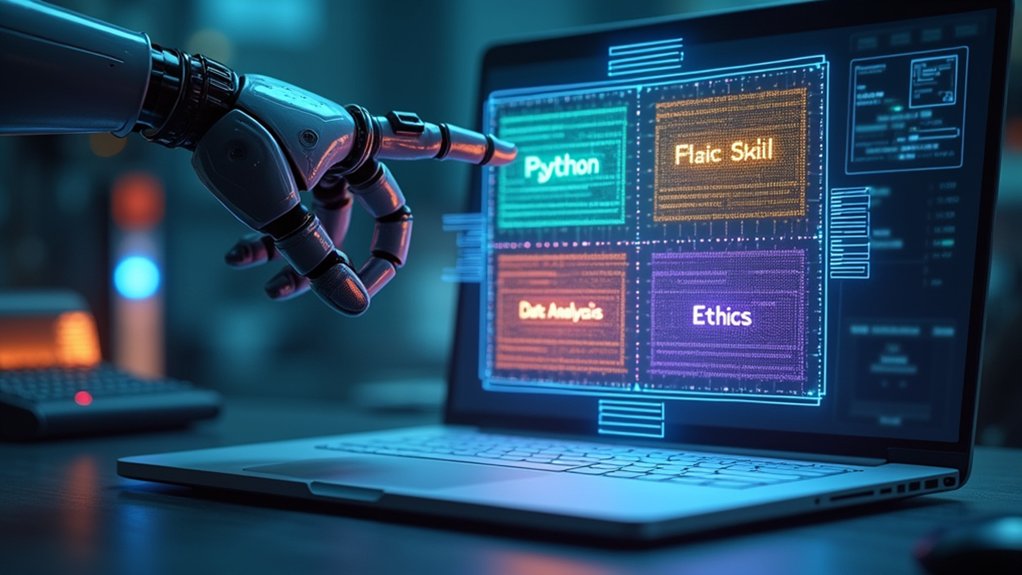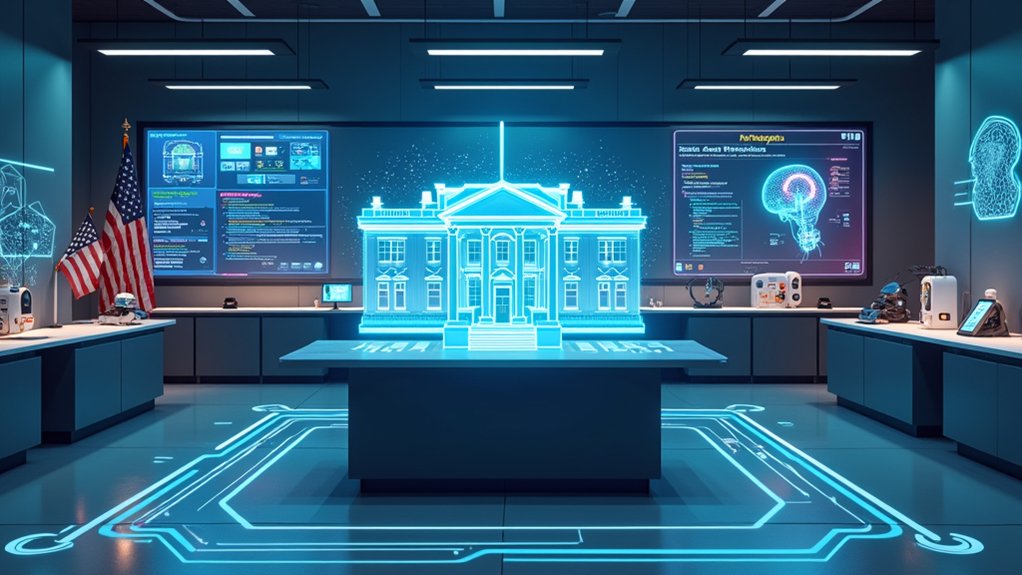As AI buzzes around like an over-caffeinated robot, defining skills for beginners boils down to the basics: core stuff like coding, data analysis, and grasping AI concepts. Experts break this into levels—beginner, intermediate, advanced, expert—each with clear benchmarks.
Think practical projects or tests to measure progress, not just vague promises. Skills split into technical and soft categories, pulling in stakeholders to keep things relevant. Oh, sure, because every organization needs AI wizards who can code and chat about ethics without tripping over their own algorithms. The use of AIaaS models allows businesses to access machine learning and other AI technologies via subscription, which is an important factor in skill development.
Core technical skills hit the ground running with programming in Python or R, covering syntax and simple constructs. Beginners tackle machine learning basics, like supervised and unsupervised learning, plus data wrangling with Pandas and NumPy.
They mess with algorithms such as linear regression, decision trees. Frameworks like TensorFlow? A must for those first clumsy steps. It’s not rocket science, but get this wrong, and you’re debugging nightmares all night.
Soft skills? Don’t roll your eyes; they’re the glue. Critical thinking slices through AI problems like a hot knife, while communication explains tech jargon to baffled bosses. Teamwork keeps projects from crashing, adaptability chases AI’s breakneck changes, and problem-solving fixes buggy models. To enhance AI skill development, organizations can use a skills matrix for mapping these essential competencies alongside technical abilities.
Sarcastic? Fine, but without these, your fancy code is just a fancy mess.
Assessing proficiency gets real with quizzes, coding challenges, peer reviews, and metrics like accuracy rates. AI tools even spot biases in evaluations—ironic, isn’t it?
Then come practical applications: hands-on projects building predictive models or cleaning data. Beginners immerse themselves in open-source collaborations, applying AI to real-world stuff like healthcare woes. Additionally, by leveraging AI skill analysis, organizations can efficiently identify and address skill gaps to enhance beginner development.
Finally, AI flips the script on skill development. Algorithms scan job descriptions, suggest growth paths, map employee gaps, and predict future demands.
It’s like AI coaching itself, a clever twist that keeps matrices evolving. Brutal world, but hey, beginners, buckle up.




